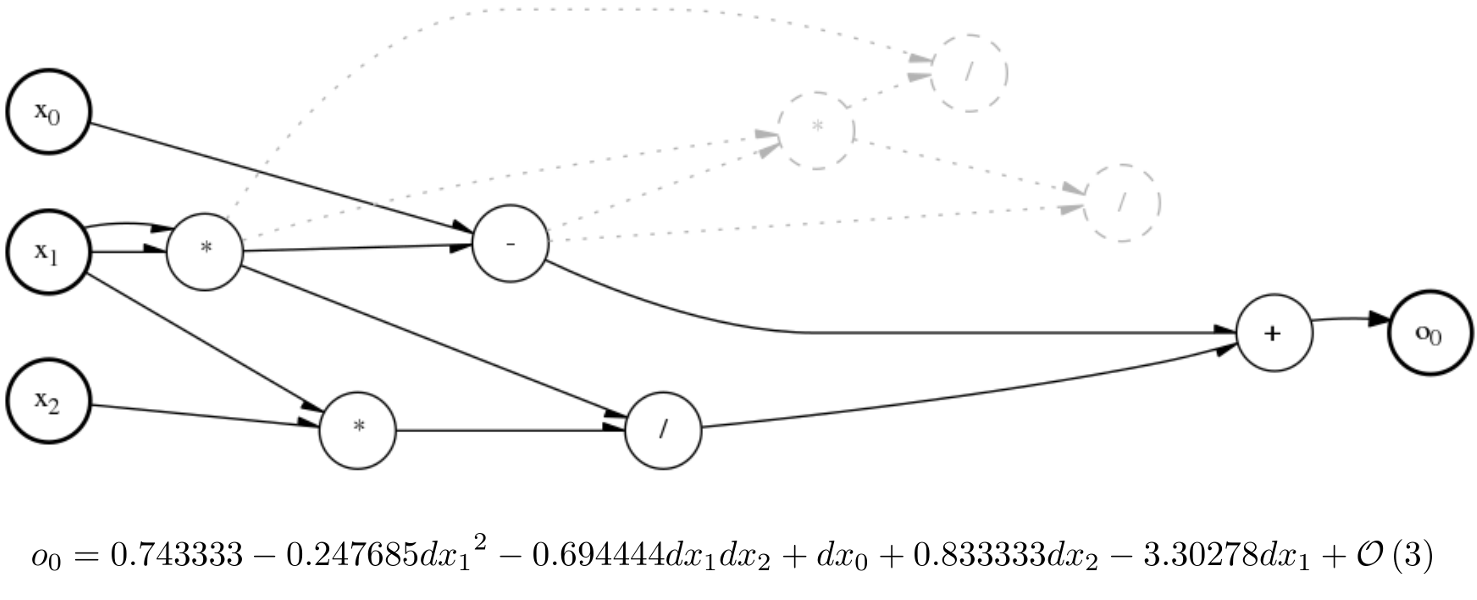Differentiable Cartesian Genetic Programming
Differentiable Cartesian Genetic Programming (dCGP) is a recent development in the field of Genetic Programming that adds the information about the derivatives of the output nodes (the programs, or expressions encoded) with respect to the input nodes (the input values) and/or weights. In doing so, it enables a number of new applications currently the subject of active research.
The evolution of the genetic program can now be supported by using the information on the derivatives, hence enabling for the equivalent of back-propagation in Neural Networks. The fitness function can be defined in terms of the derivatives, allowing to go beyond simple regression tasks and, additionally, solve differential equations, learn differential models, capture conserved quantities in dynamical systems.
Beyond the standard CGP we provide two new encodings called dCGP-W and dCGPANN. The first one adds weights to the standard CGP nodes connections, while the second one allows to encode and evolve Artificial Neural Networks, while learning its parameters too, using an underlying CGP representation.

A dCGP expression and its differential expansion in a specified point
Table of contents:
References
- dCGP1
Dario Izzo, Francesco Biscani, and Alessio Mereta. “Differentiable genetic programming.” In European Conference on Genetic Programming, pp. 35-51. Springer, 2017. Arxiv version (2016)
- dCGP2
Marcus Märtens and Dario Izzo. Neural network architecture search with differentiable cartesian genetic programming for regression. In Proceedings of the Genetic and Evolutionary Computation Conference Companion (pp. 181-182). ACM. Arxiv version (2018)